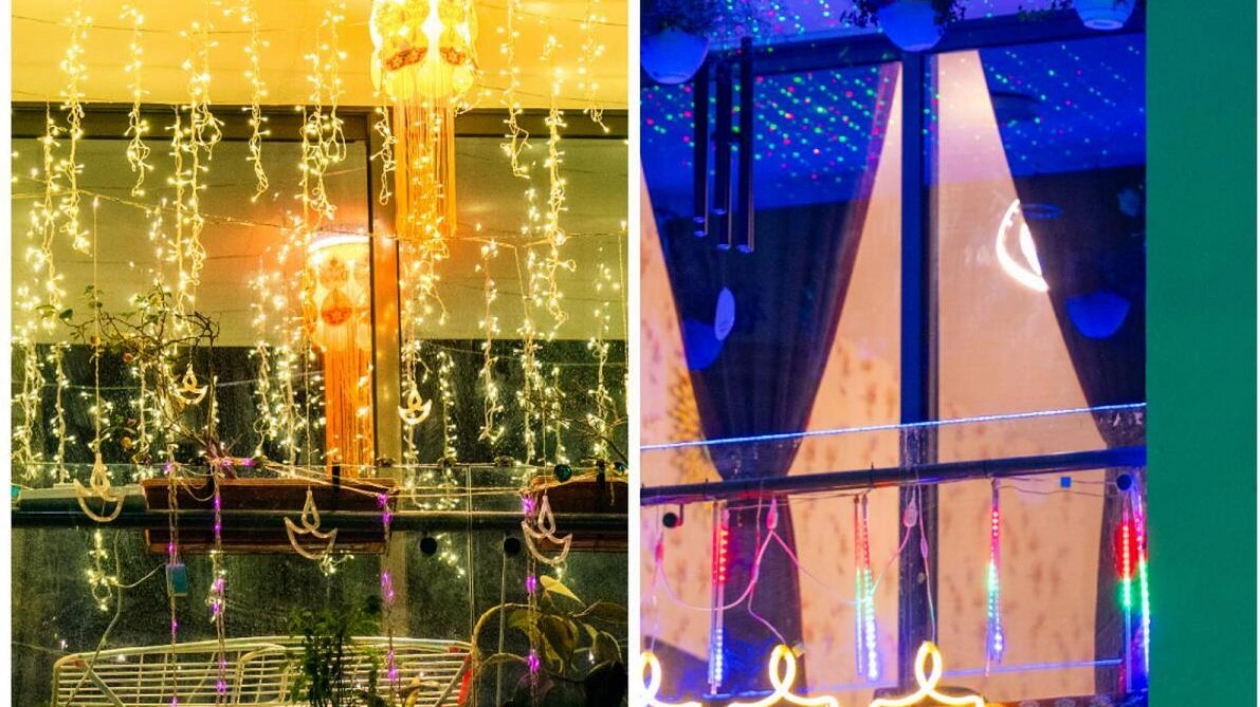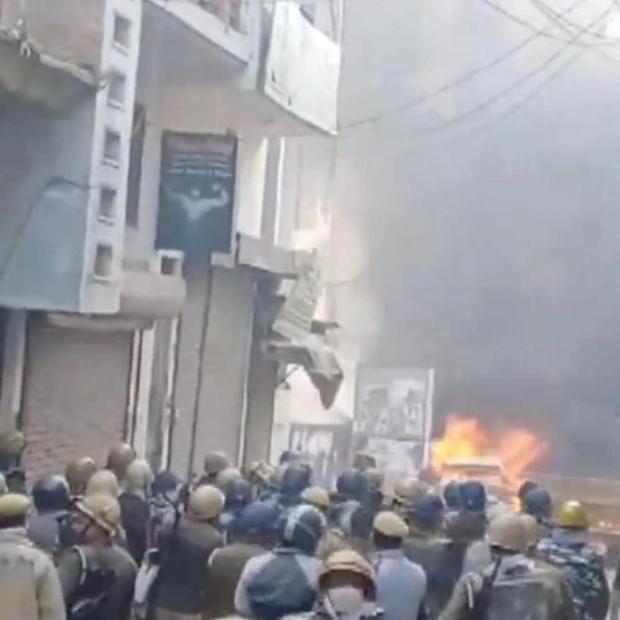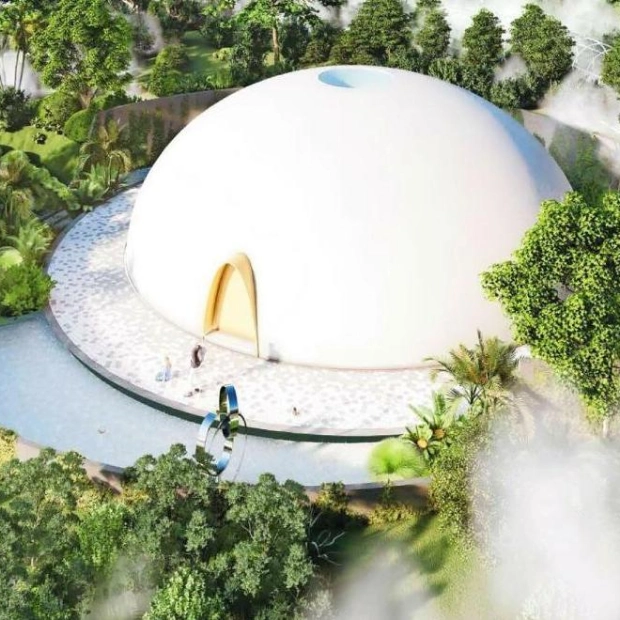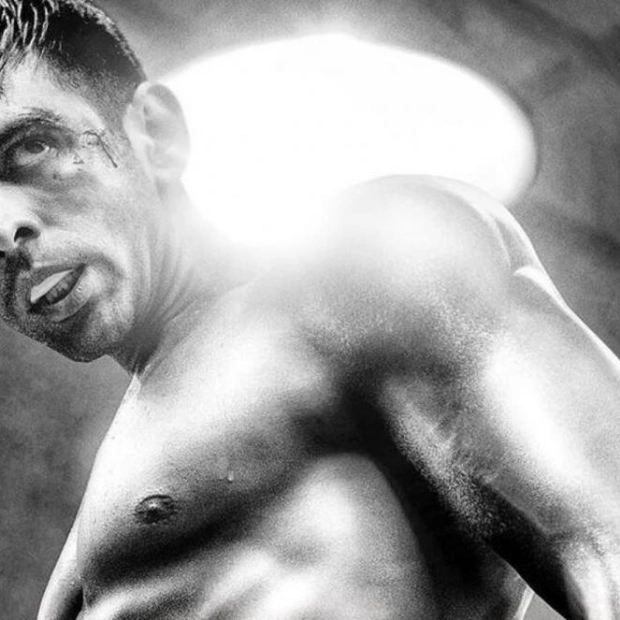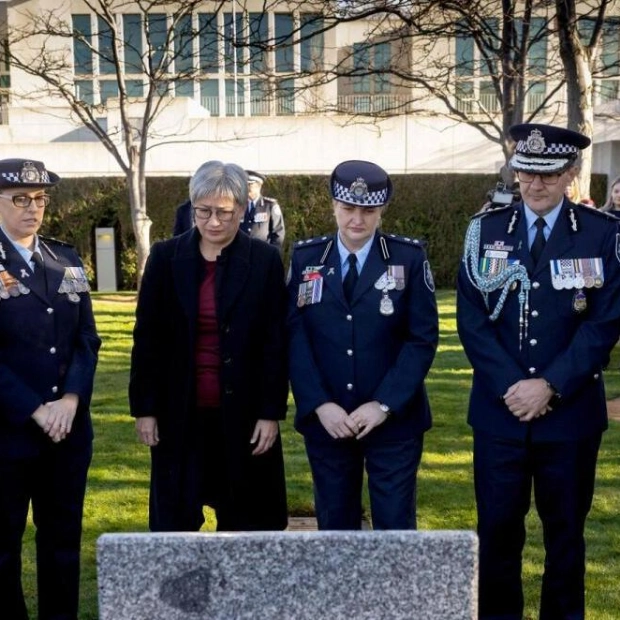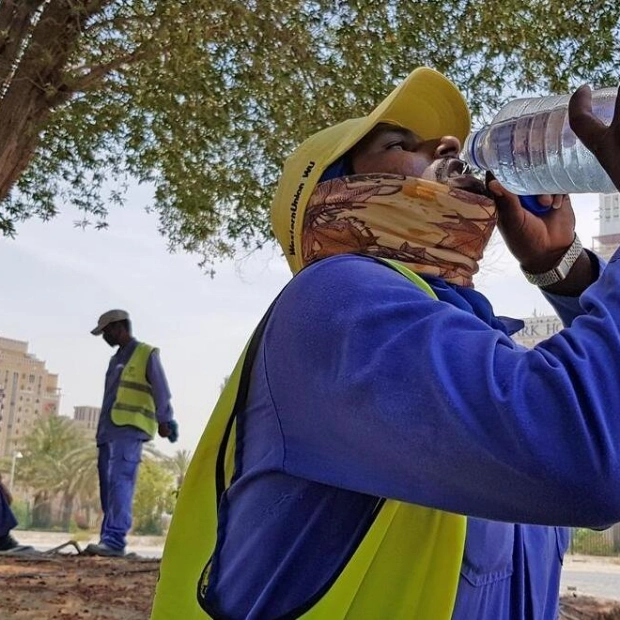Dubai's neighborhoods are aglow with lights and festive spirits as families prepare to celebrate Diwali. Among them, the Shaholia family, who have called the UAE home for 76 years, are gearing up for their 76th Diwali in the country. Divyesh Kumar Shaholia, a third-generation member, reflected on how his grandfather, Laxmichand Mohanlal Shaholia, arrived in Dubai in 1948 and established one of the city’s first jewelry shops near the Gold Souk. This legacy has deepened the family’s bond with the UAE, and they honor Diwali through a blend of traditional and modern customs.
Divyesh shared how the family embraces sustainable practices by reusing decorations and opting for LED lights, though they also refresh their decor each year to match current trends. 'We start by decorating the main living room where we'll be hosting people throughout the season, then we add lights outside, especially on balconies,' he explained. 'Even if we can’t put strip lights outside our windows, we still hang them indoors so they shine through, making them visible on the outside,' he added.
For Diwali, family gatherings are cherished, with around 30-35 relatives, including cousins and extended family, coming together to celebrate with food and gifts. 'Now, trends are changing and not every holiday falls on a weekend, so last weekend we had a big gathering at my place. One tradition that’s remained constant through generations is that everyone attends the puja (prayer) on Diwali day, no matter how late they finish work,' Divyesh said.
Traditionally, during Diwali festivities, children in the family receive a 'Diwali bonus' – a cherished tradition where children receive money in envelopes, much like Eidiya during Eid. Following the puja, family members exchange gifts and sweets before heading to their individual homes. 'On Diwali evening, after closing the shop, we bring the accounting books home for a family puja, praying for prosperity,' added the Business Bay resident. 'Our Bur Dubai stores see old customers coming over especially people who wish to buy 22K gold as Diwali is traditionally seen as an auspicious time to purchase gold,' he shared.
In keeping with tradition, the family conducts a brief morning puja at their Bur Dubai store, led by the elders. The ritual, beginning with an offering of sweets to the deity, serves as a meaningful start to their Diwali. Across Dubai, communities such as Al Mankhool, Bur Dubai, Karama, Al Nahda, and Al Barsha are adorned with lights and decorations. Residents celebrate with everything from fairy lights to colorful lanterns, illuminating balconies and homes.
Oud Metha resident Deblina Saha prepared her balcony days in advance and expressed her enthusiasm for the season, saying that Diwali is a favorite of her and her children. 'I’d love to visit the Noor festival of lights at Al Seef, but it can be challenging with young children due to the crowds,' she said. Deblina shared that she plans to gather with neighbors for snacks, sweets, and gift exchanges. In Al Qusais, Lakshmii Anand, shared that guests from India will be visiting her for Diwali. 'We started decorating a few days ago, focusing on the puja room and balcony. Friends have been arriving, and it’s a busy, joyful time,' she shared.
Alongside Lakshmi Puja, she also observes Dhanvantari Puja, honoring the God of Health. 'Tomorrow, I plan to visit the Jebel Ali temple,' she added. Devotees visiting the Jebel Ali temple for Diwali must register beforehand. Parking is available at Al Shahama F1, with shuttle buses transporting visitors to the temple. Restrictions include avoiding bags, metal items, and valuables, and allowing two hours for the experience. Temple timings are as follows: Diwali Darshan: Thursday, October 31, 9am to 9 pm; Annakut Darshan: Saturday, November 2 and Sunday, November 3, 9 am to 9 pm.
As the festive season unfolds, Dubai’s neighborhoods and families embody the spirit of Diwali, with celebrations that beautifully blend tradition, community, and sustainability.
Source link: https://www.khaleejtimes.com
